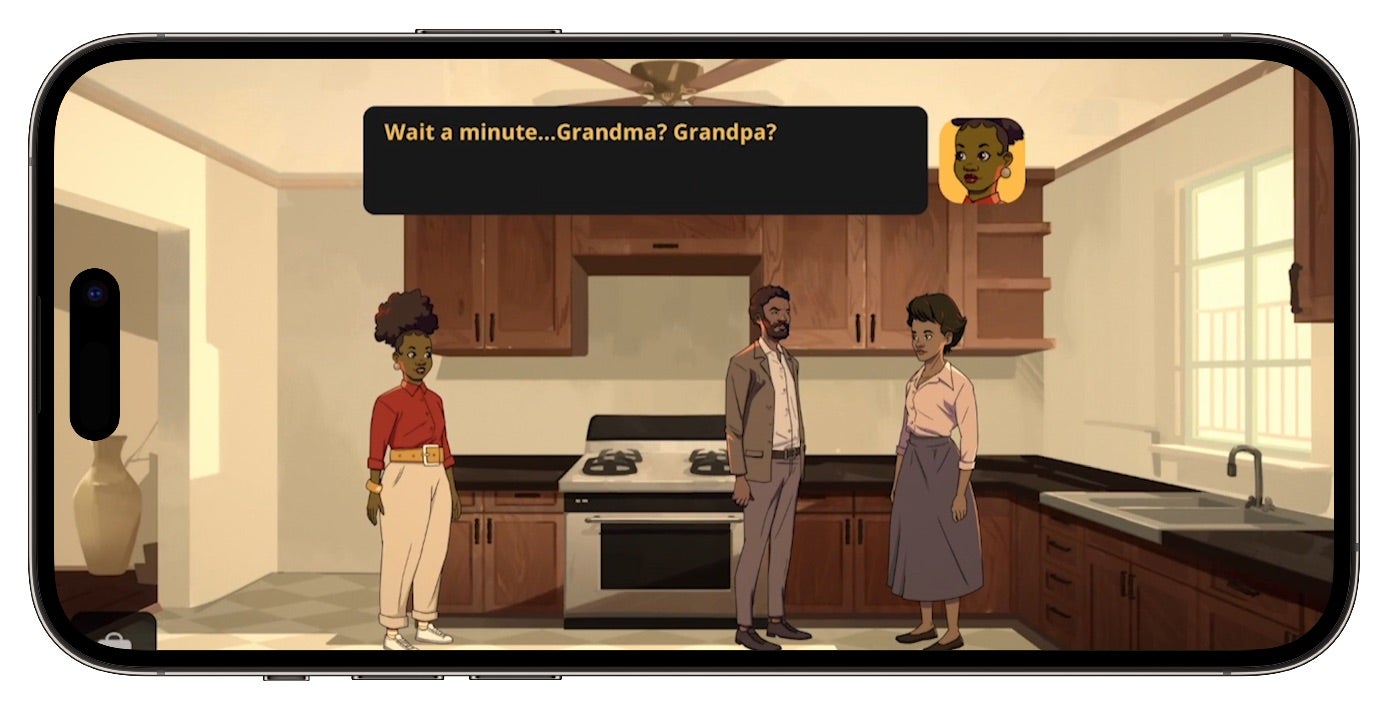
Dot’s Home is a unique game highlighting some harmful systems that can influence perceptions of race and background. It follows a young Black woman named Dorothea Hawkins, aka Dot, in Detroit as she travels through time to relive key moments in her family’s history and sees how race, place and choice impacted their lives.
The game challenges players to question society’s fairness when they are inserted into challenging scenarios and they have to decide how and where to live amid issues like redlining, urban renewal and gentrification.
The 2-D, single-player game that combines the fun of gaming with lessons on major issues of inequality won Apple’s Cultural Impact Award at the end of 2022.
While issues such as housing discrimination may seem to be an unlikely theme for a video game, Supervising Producer Paige Wood tells ESSENCE that it was necessary as it mirrors the experiences that so many disenfranchised Americans face regularly.

“We really want this game, I would say, to dispel this idea of equal opportunity. I think that’s something that’s purported in the American Dream. Everyone has the same pathway and steps, and it’s just making the right ones. And you can end up just on the same path of success as everyone else. But particularly, anyone who has a bit of melanin in their skin knows that’s not the case,” says Wood.
“So we want to showcase that there were systems in place and there are systems in place that are barriers to letting people and families have the same choice of opportunity as anyone else,” she adds.
The Detroit-based producer and filmmaker worked on the game as part of the Rise-Home Stories Project, an organization founded by BIPOC multimedia storytellers and social justice advocates who use technology to tell stories about housing, land and racial justice issues.
“We at Rise Home Stories like to think of the game as one that not only showcases the hard choices that Black and brown Americans or Black and brown people had to make, historically, when it came to trying to find a home in the US. But it also asks the players to ask themselves, where did I come from, and how did me and my family get to where we are today?

Dot’s Home is one of five groundbreaking media projects created by the organization. Wood says the organization strives to validate BIPOC experiences, challenge narratives that value profit over people and convey the beauty and diversity of families and communities of color.
The game is set in Detroit. However, Wood shares that the issues it presents give an “any city quality” that people in other parts of the United States can likely relate to. Even if these issues are ones a gamer may have never heard of, Dot’s Home aims to educate and raise awareness.






“We’ve had great reactions from folks who may not have had this lived experience or family history that they can say they relate to but are learning from this and saying this exposed something they never knew. And that was also crucial for us in making the game,” she says.
Wood encourages others to use their platforms to bring issues to the forefront, even in industries where it may seem unlikely because “telling a good story is universal,” and it may be the story someone else needs to hear.
“We will actually need to recognize and interrogate what people of color, what queer folks, what differently-abled folks have gone through, what indigenous people have gone through in order to really take a step forward, wherever we are,” she says.







